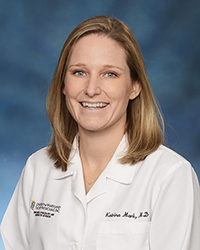April 16, 2020
Center Will Examine the Short and Long-Term Effects of Substance Use on Mothers and Their Children
 Asaf Keller, PhD, Professor and Interim Chair of the Department of Anatomy & Neurobiology at the University of Maryland School of Medicine (UMSOM), along with UMSOM Dean E. Albert Reece, MD, PhD, MBA, have announced the formation of a new research center to study the long-term health effects on the brains of children born to women who use drugs and alcohol during pregnancy. The Center for Substance Use in Pregnancy will conduct pre-clinical and clinical neuroscience research, focusing on the use of marijuana, opioids, nicotine and alcohol, all of which have increased dramatically in recent years. The center will be co-directed by Joseph Cheer, PhD, Professor of Anatomy & Neurobiology and Psychiatry, and Mary Kay Lobo, PhD, Associate Professor of Anatomy & Neurobiology.
Asaf Keller, PhD, Professor and Interim Chair of the Department of Anatomy & Neurobiology at the University of Maryland School of Medicine (UMSOM), along with UMSOM Dean E. Albert Reece, MD, PhD, MBA, have announced the formation of a new research center to study the long-term health effects on the brains of children born to women who use drugs and alcohol during pregnancy. The Center for Substance Use in Pregnancy will conduct pre-clinical and clinical neuroscience research, focusing on the use of marijuana, opioids, nicotine and alcohol, all of which have increased dramatically in recent years. The center will be co-directed by Joseph Cheer, PhD, Professor of Anatomy & Neurobiology and Psychiatry, and Mary Kay Lobo, PhD, Associate Professor of Anatomy & Neurobiology.
In addition to studying animal models of exposure, the center will conduct longitudinal studies to measure the effects on children from infancy to adolescence, when behavioral problems tend to emerge. The center will also investigate possible interventions and the effectiveness of medications to reverse the effects of in utero exposure to drugs such as nicotine, alcohol, marijuana and opioids.
Opioid use has risen significantly among pregnant women in recent years. According to the Centers for Disease Control and Prevention, the number of women who have used opioids at the time of their baby’s birth has more than quadrupled since 1999. Data indicates a similar increase in marijuana use among pregnant women.
“It is alarming that many pregnant women right now are assuming incorrectly that cannabis use in pregnancy is safe for their child,” said Dr. Keller.
In previous research on the effects of cannabis use, Dr. Keller found regular marijuana use in adolescence, but not adulthood, may permanently impair brain function and cognition, and may increase the risk of developing serious psychiatric disorders such as schizophrenia.
As a growing number of U.S. states legalize the medicinal and recreational use of marijuana, an increasing number of American women are using cannabis before becoming pregnant and during early pregnancy, often to treat morning sickness, anxiety, and lower back pain. Such use could also raise their risk of complications from Covid19, according to the American Lung Association, because it causes lung inflammation that makes it harder for the immune system to safely fend off the virus.
 “The problem is we don’t know what effects marijuana use has on children who were exposed to the drug in utero,” says Dr. Cheer. “There are no longitudinal studies that have looked at what happens to the offspring of a woman who uses marijuana during pregnancy. We don’t know the consequences on pediatric development both in the short-term early infancy/toddler years nor longer term into the teen years and early adulthood.”
“The problem is we don’t know what effects marijuana use has on children who were exposed to the drug in utero,” says Dr. Cheer. “There are no longitudinal studies that have looked at what happens to the offspring of a woman who uses marijuana during pregnancy. We don’t know the consequences on pediatric development both in the short-term early infancy/toddler years nor longer term into the teen years and early adulthood.”
Recent preclinical research by Dr. Cheer and his collaborators, published in the journal Nature Neuroscience, suggests that prenatal exposure to THC, the psychoactive component of cannabis, makes the brain’s dopamine neurons (an integral component of the reward system) hyperactive and increases sensitivity to the behavioral effects of THC during pre-adolescence. Further studies are needed to determine whether the findings apply to humans.
Led by the Department of Anatomy and Neurobiology, the center will coordinate research efforts already underway across multiple departments in UMSOM, including Obstetrics and Gynecology, Pediatrics, and Psychiatry.
 Pre-clinical researchers hope to profile specific cell sub-types and conduct gene sequencing to better understand the molecular changes that lead to disruptive behaviors. "We can use these types of tools to identify molecular targets for future treatments," says Dr. Lobo.
Pre-clinical researchers hope to profile specific cell sub-types and conduct gene sequencing to better understand the molecular changes that lead to disruptive behaviors. "We can use these types of tools to identify molecular targets for future treatments," says Dr. Lobo.
Associate Professor of Anatomy and Neurobiology. The center will create opportunities for translational research and collaboration between basic science researchers and clinicians, Dr. Lobo added.
 Cannabis use in pregnancy will be the focus of clinical research by Katrina S. Mark, MD, Associate Professor of Obstetrics, Gynecology and Reproductive Sciences, and co-clinical director for the center.
Cannabis use in pregnancy will be the focus of clinical research by Katrina S. Mark, MD, Associate Professor of Obstetrics, Gynecology and Reproductive Sciences, and co-clinical director for the center.
"Thirty percent of pregnant woman test positive for marijuana use at their initiation of pre-natal care at our faculty practice in Baltimore," says Dr. Mark. "Twenty-five percent of those woman will continue to smoke throughout their pregnancy, despite being warned of the negative health effects for the baby."
 In future research, Dr. Mark wants to understand the reasons why some women continue to smoke marijuana during pregnancy. Dr. Mark plans to investigate how childhood adversity and trauma affect the likelihood of a woman using cannabis during pregnancy.
In future research, Dr. Mark wants to understand the reasons why some women continue to smoke marijuana during pregnancy. Dr. Mark plans to investigate how childhood adversity and trauma affect the likelihood of a woman using cannabis during pregnancy.
The effects of substance use in pregnancy on children exposed to these substances in the womb will be the focus of clinical research by Dina E. El-Metwally, MB BCh, PhD, Professor of Pediatrics and co-clinical director for the center.
“Our previous research revealed differences in the severity of withdrawal signs in babies exposed to prenatal opioids,” said Dr. El-Metwally. “We saw race-based differences in their response to pharmacotherapies and hospitalization rates that require further exploration.”
Dr. El-Metwally and collaborating scientists are currently researching the underlying genetic and multi-omic biomarkers to explain disparities in the severity of withdrawal symptoms among infants in the NICU. They are using deep machine learning techniques to develop polygenic risks that take into account ethnicity. In addition, implicit bias in the clinical assessment of withdrawal symptoms is being explored. The team also aims to study the impact of marijuana and opioids on short and long-term neurobehavior in infants.
Initial funding to establish the center was provided by a grant from the Dean’s office, with coordination and support from Terry Rogers, PhD, Professor of Biochemistry and Molecular Biology and Associate Dean for Research Development and Administration.
 “Substance use in pregnancy is an important medical and societal issue that deserves increased attention from researchers and physician-scientists alike,” said E. Albert Reece, MD, PhD, MBA, Executive Vice President for Medical Affairs at UM Baltimore, and the John Z. and Akiko K. Bowers Distinguished Professor and Dean, University of Maryland School of Medicine. “With many states legalizing the recreational and medicinal use of marijuana, it is important that we understand the consequences of substance use in pregnancy for mothers and their children,” said Dr. Reece, who is also Professor of Obstetrics, Gynecology and Reproductive Sciences.
“Substance use in pregnancy is an important medical and societal issue that deserves increased attention from researchers and physician-scientists alike,” said E. Albert Reece, MD, PhD, MBA, Executive Vice President for Medical Affairs at UM Baltimore, and the John Z. and Akiko K. Bowers Distinguished Professor and Dean, University of Maryland School of Medicine. “With many states legalizing the recreational and medicinal use of marijuana, it is important that we understand the consequences of substance use in pregnancy for mothers and their children,” said Dr. Reece, who is also Professor of Obstetrics, Gynecology and Reproductive Sciences.
About the University of Maryland School of Medicine
Now in its third century, the University of Maryland School of Medicine was chartered in 1807 as the first public medical school in the United States. It continues today as one of the fastest growing, top-tier biomedical research enterprises in the world -- with 45 academic departments, centers, institutes, and programs; and a faculty of more than 3,000 physicians, scientists, and allied health professionals, including members of the National Academy of Medicine and the National Academy of Sciences, and a distinguished two-time winner of the Albert E. Lasker Award in Medical Research. With an operating budget of more than $1.2 billion, the School of Medicine works closely in partnership with the University of Maryland Medical Center and Medical System to provide research-intensive, academic and clinically based care for nearly 2 million patients each year. The School of Medicine has more than $540 million in extramural funding, with most of its academic departments highly ranked among all medical schools in the nation in research funding. As one of the seven professional schools that make up the University of Maryland, Baltimore campus, the School of Medicine has a total population of nearly 9,000 faculty and staff, including 2,500 student trainees, residents, and fellows. The combined School of Medicine and Medical System (“University of Maryland Medicine”) has an annual budget of nearly $6 billion and an economic impact more than $15 billion on the state and local community. The School of Medicine faculty, which ranks as the 8th highest among public medical schools in research productivity, is an innovator in translational medicine, with 600 active patents and 24 start-up companies. The School of Medicine works locally, nationally, and globally, with research and treatment facilities in 36 countries around the world. Visit medschool.umaryland.edu
About the Institute for Genome Sciences
The Institute for Genome Sciences, founded in 2007, is an international research center within the University of Maryland School of Medicine. Comprised of an interdisciplinary, multidepartment team of investigators, the Institute uses the powerful tools of genomics and bioinformatics to understand genome function in health and disease, to study molecular and cellular networks in a variety of model systems, and to generate data and bioinformatics resources of value to the international scientific community. igs.umaryland.edu
Contact
Office of Public Affairs
655 West Baltimore Street
Bressler Research Building 14-002
Baltimore, Maryland 21201-1559
Contact Media Relations
(410) 706-5260
Related stories

Monday, July 24, 2023
Structure of Opioid Receptors May Reveal How to Better Design Pain Relievers, Addiction Therapies
Opioids remain the most potent and effective pain relievers in medicine, but they’re also among the most addictive drugs that can halt a person’s ability to breathe during an overdose — which can be deadly. Researchers have been racing to develop safer pain reliever drugs that target a specific opioid receptor, called the kappa opioid receptor, that is only found in the central nervous system and not elsewhere in the body, like other opioid receptors. Previous research suggests that such drugs may not lead to addiction or death due to overdose, but the currently known drugs that target these kappa opioid receptors have their own set of unacceptable side effects, including depression and psychosis.

Tuesday, February 09, 2021
UM School of Medicine Researchers Find that Misuse of Opioid Drugs During Pregnancy Could Have Lasting Impact on Child’s Development from Infancy Through Teen Years
As the number of pregnant women using opioid drugs continues to rise, questions have been raised about the long-term health effects on children exposed to these drugs in the womb. Researchers at the University of Maryland School of Medicine now have preliminary but striking evidence that suggests that such exposure can cause long-lasting impairment in the brain’s ability to process sensory information. These impairments may give rise to autism, attention deficit hyperactivity disorder, and substance use disorders during adolescence. The landmark study, recently published in Journal of Neuroscience, used a preclinical model to study the issue and found that newborn mice exposed to the opioid fentanyl in the womb developed withdrawal symptoms and sensory processing disorders that lasted at least until adolescence.

Wednesday, October 16, 2019
Researchers Discover Potential Therapy to Treat Detrimental Effects of Marijuana in Pre-Adolescent Individuals Exposed to THC in Womb
As a growing number of U.S. states legalize the medicinal and recreational use of marijuana, an increasing number of American women are using cannabis before becoming pregnant and during early pregnancy often to treat morning sickness, anxiety, and lower back pain. Although emerging evidence indicates that this may have long-term consequences for their babies’ brain development, how this occurs remains unclear.

Friday, April 20, 2018
New Research Illuminates Important Links Between Avoidance Behavior and Key Brain Chemicals
Scientists at the University of Maryland School of Medicine have for the first time found direct causal links between a key brain chemical and avoidance-behavior related to pain and fear.

